“As a nation, Nigeria has not been blessed with charismatic leadership universally acclaimed or generally acceptable to all. Neither have Nigerians been fortunate enough to have such a great leadership imposed. A charismatic leader must fire the imagination of the people and reflect their collective ego with pride. There is no historical necessity for this to happen in a heterogeneous society such as Nigeria but if it did, it will assist the process of restoring national self-confidence and arresting further decline of the nation” – Alison Ayida, former Super Permsec
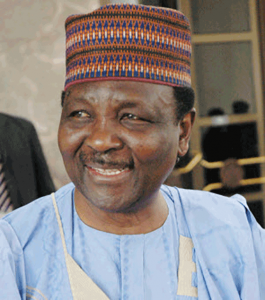
‘No victor, no vanquished’
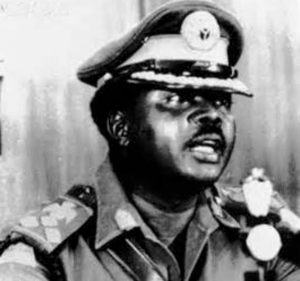
‘Africa has come of age’
There is an illusion from which the challenge of re-inventing leadership Nigeria must be rescued. It is the illusion in the public sphere that, somehow, a good man will someday come to power and all the problems would be over. This notion has a long history and endorsement even in serious circles as can be seen from the above quotation from Alison Ayida, one of those who actually ran Nigeria at some point and a star in the most authentic sense of it. But, this has been unachievable in Nigeria.
If there were one or would be one, Buhari should be it. A retired General who pulled the crowd everywhere while campaigning in 2015 can be no less. But, by 2019, Buhari had to struggle like every other incumbent to retain power. How great it would have been if he got his second term by acclamation! Today, Buhari, a nationalist is at war with the Academic Staff Union of Universities, (ASUU), a tested nationalist collective. It is not that clear if the president appreciates the dent being at war with a symbol such as ASUU makes on his whole claim to nationalism. What Nigeria would have wanted to see is a Buhari and an ASUU in a beautiful marriage because any claim to nationalism that cannot find a meeting ground with an ASUU has been contested. Saying so is not an uncritical celebration of ASUU. Rather, it is coming to grip with something. Forget about what people say, ASUU is one of the few indicators that confirms Nigeria’s claim to modernity in every sense of it. It raises the question about who talks to the president and what they tell him or what importance they attach to certain things.
Instead of being achieved, each of the prospective good leaders became “simply those waiting to get into those very positions that eventually turn them into bad rulers”. The situation calls for an alternative way of looking at the problem: a society must strengthen its power resources for disciplining power beyond the ‘good guy’ expectation. The attempt here is to see how discursive power achieves disciplining power, using Col. Dangiwa Umar’s recent critique of the Buhari regime over lopsided constitution of government as a case study.
Retired military chief, Dangiwa Umar, seems to have successfully stolen the show among commentators on President Buhari’s 5th anniversary of being in power. That is certain to be for the reason of the symbolism of the Umar name, the issue of lopsidedness in leadership recruitment by the Buhari government and the timing of his intervention. Unfortunately, the intervention has been appropriated by those who see it as a commendable step on the one hand and by its critics on the other. Both sides have left unattended the situated assessment of the intervention in terms of discourse as a technology of power, even in Nigeria. This is certainly unfortunate in the light of civil society’s crisis of productive engagement with power in the current epoch.
Without resolving that crisis, Nigeria would remain lost in a cycle of hatred for leaders they elect with all enthusiasm today but only to turn against tomorrow on ground of failure to perform. As much as the Buhari persona and regime configuration constitutes a different dimension of the crisis of performance, there is also something to remember when it comes to re-inventing leadership in Nigeria. It is the fragmentation that enveloped the world in the aftermath of the Cold War. That fragmentation has made all manner of leaders emerge but makes the performing leader scarcer and scarcer. This is compounded by the stranglehold of capital on small and big, powerful and powerless states. Most leaders thrown up across the world are simply disoriented under this stranglehold. The implication is that only very few places in the world today parade performers.
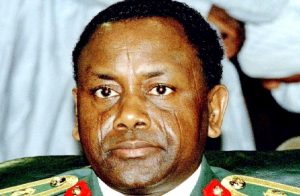
Still unravelling
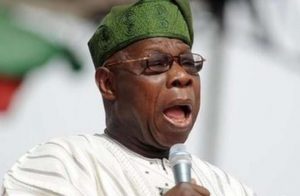
‘SAP must have a human face’
Whichever one of the two explanations best accounts for the trouble with Nigeria at this point in time, there is something dangerous in assuming that individuals have the agency to draw a list of good things and achieve such for the society. The truth which has not come to light as much as it is now is that individuals are just too fragmented to exercise that autonomy of the self claimed for them. Even the strongest individual is always a product of a combination of happenstances, directing good intentions to productive outcome. Relying on the great, good guy is thus the most harmful collective self-abuse for any society.
Some people will find the idea of the average individual leader being a combat space of conflicting subject positions a bit difficult to accept. But, it is not a question of whether they accept or not but about they becoming curious as to why such individuals are so few in the world today. Structuralists who may have no difficulty in accepting that relying too much on individuals is risky because that is what they have always said are also in for an even worse shocker because institutions are even more vulnerable than agency. This is a claim even a kindergarten can prove, using just Nigeria as a case study and seeing the ease the with which individuals have messed up solid institutions in Nigeria such as the Police, the foreign policy space and the universities in so short a time.
If neither the great guy, Mr. Charismatic, the Messiah nor institutions gives us guarantee of the future perfect, then what are the options open to society? Society’s answer is in its ability to colonise the space of power, a process in which lies the significance of what Dangiwa has done. It does so within the limits of the iterative prospects of his intervention. That is, the prospects of a great welcome for his position, the reading, interpretation and understanding of same as gospel truth. Where that iterative process favours his position, then those condemning him are simply wasting their own time or simply engaged in unproductive circulation because the space he has captured is no longer available for reclamation by such critics owning to the very reasons for the loss for the loss of the space in the first case.
In that sense, Umar spoke to the practice of the language game in the politics of power, the most effective of the several tactics of colonizing the space of power. This is particularly so if his intervention is linked to other similar interventions to produce a coherent frame of intelligibility towards a popular ‘common will’, an alternative framework. Within this context, hailing him or condemning him becomes a pure waste of time and energy because once such a position has struck deep into aggregate perception of the reality in question, then the position of the person condemning him becomes just a contending discourse which can very well destablise Umar’s but only after some time, never immediately.
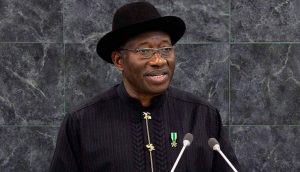
Victory in defeat?

It is a matter of signifying practice
Umar is not the first symbolic voice to canvass a position on a national issue. His happens to stress the most powerful of the arsenal of power resources in the accepted practices in liberal and even illiberal democracies for fusing leadership and power to productive governance as a cure for responsive and responsible governance being taken for granted. It is these practices that provide the permanent reminder to the most key individuals in a government about what should be done, what is most important and what is most urgent. Permanent pressure on these three key issue areas rather than the agency of the great leader is a surer guarantee for productive governance.
History records two other techniques in this regard as the most accepted. One is the backdoor channel by which the most strategic individuals in government can be apprised of what might be the most urgent or most important away from the klieg lights and devoid of idolatry. It is said to be the most effective in societies where diffuseness is a hindrance rather than help. Nigeria is a good example of that sort of diffuseness, where a technician can claim the status of an engineer and a paramedical staff can pass in posing as a medical doctor.
The Minister for Finance in one of the wobbling coalition governments in the days of upheaval in Zimbabwe under Robert Mugabe was used to saying how, in spite of the tension in government, he never had problems because whatever he discussed with Mugabe before hand, he was sure to get it approved in council, no matter the opposition from colleagues. His is a testimony to the efficacy of the back channel in a very peculiar situation. The back channel has remained a viable power resource in Nigeria historically although it also remains fraught with the smallness of the circle it covers. It is more available to elite from the professional base, old school mate or similar unremarkable circuit of the leader.
The second would be the protest culture which allows for symbolic registration of approval or disapproval. In Nigeria, protests to register approval are more pervasive than the other way round. Protests to register disapproval is feared by incumbents for good and bad reasons. The bad reason is that incumbents do not want the tar on them that it amounts to. The good reason is that such protests are most often hijacked by other elements who have no idea of what it is all about. That is actually another dimension where the diffuseness in Nigeria can hinder progress rather than the good.
But civil society must set agenda for power because there is no magic in any good man somewhere that power will not reconfigure.




























